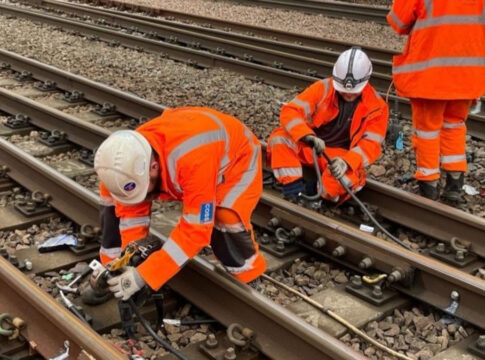Sweden is working on the key Western Main Line, which connects Stockholm to Göteborg. The replacement of a power plant and capacity upgrades require closures in the vicinity of Göteborg. It is now clear that the line in that area will be unavailable for train traffic during many weekends this spring.
The choice for weekend closures was made in order to limit the impact on commuter traffic, says Trafikverket, Sweden’s transport administration. The infrastructure work will take place between Göteborg and nearby Alingsås.
Week 12: March 21-23
Week 13: March 28-30
Week 14: April 4-6
Week 15: April 11-13
Week 19: May 9-11
Week 20: May 16-18
Week 21: May 23-25
Closure times: From 22:00 on Friday to Sunday 14:00.
Autumn 2025 closures
Week 35: August 29-31
Week 36: September 5-7
Week 37: September 12-14
Week 38: September 19-21
Week 42: October 17-19
Week 43: October 24-26
Week 44: October 31-November 2
Week 48: November 28-30
Week 50: December 12-14
Future closures
2026 and early 2027: Similar weekend closures as 2025 (exact times are to be determined).
Summer 2026: Total shutdown for eight weeks from weeks 26 to 33.
The primary work to be done on the line is the replacement of an entire electric power plant, which is connected to the rail network. Trafikverket is also rebuilding a station on the line, so that fast trains can overtake slower trains, increasing capacity on the route.
During the closures, trains will be rerouted on tracks around the Western Main Line to bypass the Göteborg – Alingsås section, but they will be able to enter the line again once they pass the closed part.

Rail freight concerns
Swedish rail freight parties expressed concerns about the Western Main Line closures in 2024. At the time, there were no weekend closure plans yet. Rather, Trafikverket introduced plans to allow one freight train per hour and have freight-free hours in the afternoons.
“It will be difficult to be forced to run most of the freight trains during the night,” Stephan Ray from Green Cargo told Swedish media in October. “Loading and unloading of the trains in the port takes place around the clock and requires a continuous flow of trains from and to the port if the logistics are to work and the railway yard does not become clogged.”
